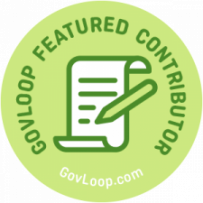Have you ever thought vulnerability could be your BFF — your best friend forever? To fully appreciate the value of vulnerability, you need to know the definition. Vulnerability is the quality or state of being exposed to the possibility of being personally attacked or harmed, either physically or emotionally. The exposure can happen when you least expect it. When it occurs, sometimes, it can make you feel threatened, defensive, afraid and even powerless.
You might be wondering, given the definition, how can a perceived, personal attack that leaves you vulnerable, become your BFF?
As a leader in the financial industry, this is my personal story about vulnerability — pure and simple. I managed a team years ago and we were a great team — well-established, honest, family-oriented, tight-knit, work-hard and play-hard. That was until one day, when several team members came to me voicing workload concerns, and at the height of the conversation, loud angry voices amplified. They began to attack me verbally, feeling the workload was too much, the hours were too long and the expectation was too high.
I was shocked about their concerns because we always shared honest conversations about work distribution and goals. But the way they attacked made me feel like I was a little kid on a playground, surrounded by people who wanted to hurt me. Though I wanted to yell back and defend myself, I just stood there, took the verbal beating and held back the tears. I felt defeated and wanted to crawl into a shell; vulnerability settled in quickly.
Then I began to re-think my leadership approach, not just for me but for the mission and the sake of the team. I determined what was working well and what needed to be changed to successfully move forward to improve our workload, interpersonal relationships and collaboration.
I implemented new concepts for all of us to buy into:
- Lead by example and bestow a legacy for others to cultivate.
- Earnestly forgive and make every effort to understand others’ perspectives.
- Accept what you cannot change and focus on what you can change.
- Don’t assume everyone understands the BIG picture — review goals often.
- Evaluate work progress by using open and honest communication.
- Realize that you still have secret supporters — all is not lost.
- Soften your approach, practice humility, and grow together exponentially.
The key is to embrace what made you vulnerable, learn from it and grow from the experience. We arrived at our destination and just slightly changed our course for getting there. We overcame the challenges of vulnerability by addressing communication issues, developing stronger working relationships, and doing the work to gain more trust with each other, like never before.
This enduring lesson has become a valuable tool as it has helped me in other professional and personal situations. Never underestimate the power of vulnerability — it can be your best friend in the long run, as a leader, open to self-reflection and change.
Interested in becoming a Featured Contributor? Email topics you’re interested in covering for GovLoop to featuredcontributors@govloop.com. And to read more from our Spring 2021 Cohort, here is a full list of every Featured Contributor during this cohort.
Wanda Dandridge is a subject matter expert on financial management systems for the Defense Logistics Agency (DLA) Energy located at Fort Belvoir, Virginia. Her government career spans over 15 years, starting as an Army intern in financial management, then subsequently emerging as a transformational leader with DLA specializing in budget analysis, logistical support and employee development. Wanda’s greatest career accomplishment is receiving the Federal Employee of the Year Award with DLA Energy Pacific in 2012. Her philosophy is to lead by example while fostering others for their desired purpose. She is a Certified Defense Financial Manager (CDFM) who enjoys volunteering in her local community.





Wow! Thank you for being vulnerable and sharing your story. When the attack or harm catches you off guard, and it comes from a close, tight-knit team, that’s so hard to endure. But you did it, and you’ve come out with a story to tell. What you shared about addressing communication issues and developing stronger working relationships is SO critical as we adapt to the nature of work changing.